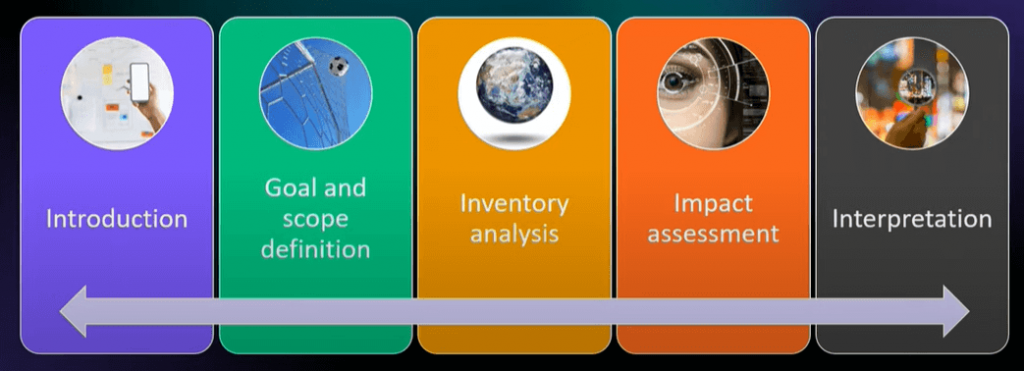30 October 2023, 9:30 – 16:00, Oak Suite 1-2, University of Surrey (see map)**, registration here, agenda here
This in-person workshop aims to establish the Goal and Scope Definition of Life Cycle Assessment (LCA) following the ISO14040-44 principles for the UK anaerobic digestion systems. Key players in the field will be invited to set out the objectives and outreach of the fundamental tools and standardized methodologies. Industrial practitioners will be invited to share their problems.

From here, the aim will be to merge the problems and solution approaches through more discussion-oriented meetings. The working group will identify some tangible problems to work on, e.g., optimising anaerobic digestion for net-zero. Industrial attendees are particularly welcome.
The participants are expected to have a broad understanding of LCA and workshop attendees should familiarise themselves with the following resources, as they are helpful in understanding how an LCA study is done in practice, as well as facilitating better engagement and interactions with the LCA Community:
- practical problem-solving using LCA software on YouTube
- Chapter 4 LCA
- Chapter 5 – Data Uncertainty Multi-criteria analysis
Both of the above chapters are from Biorefineries and Chemical Processes: Design, Integration and Sustainability Analysis by J. Sadhukhan et al. The Goal and Scope Definition is the first stage of the four interconnected stages of LCA.
The event is limited to 20 attendees. Note that we will confirm your place by email; i.e. Eventbrite confirmation registers your interest, but DOES NOT guarantee a place.
Expected Output: LCA Data/models to be created. These could be generic/standardized to be made available open-source via https://tesarrec.web.app/sustainability or more specific/confidential to more engaging industrial partners.
ROOM VENUE AND AGENDA DETAILS TBC
FURTHER INFORMATION: The purpose of the EB Network’s Process Integration and Sustainability Assessment working group is to create awareness of our Theme 3: Technology Interfaces. Technology Interfaces cut across the other two themes of the EBNet: Pollutants and Media and Biosciences for Engineering. The main driver for this theme is to translate the outcomes of environmental biotechnology into societal benefits. For this, systematic appraisal at a whole process flowsheet level, as well as supply chain system level, is necessary using a whole range of sustainability criteria. Many technical, environmental, social and economic considerations have to be taken into account and analysed using tools and methodologies, which are sometimes more standardized and at other times more fundamental. Process integration or process systems engineering tools stem from the idea of the highest efficiency flowsheet development with the maximum in-process recovery of energy and material resources so that the flowsheet is self-sufficient and least reliant on market externalities. The integrated process flowsheet is then inherently more economically viable than otherwise, where the majority of the cost may be incurred from external heating, cooling, electricity and other factors.
Following the process integration principles, fundamental reactions through separation to utility system designs and optimisation are conducted. There are fundamental tools to help scale up and process integration to create a design with the highest economic margin and resource efficiency. In addition, sustainability assessment is necessary through life cycle assessment (ISO14040-44) and social responsibility analysis (ISO26000) to ensure that across the scales (temporal: life cycle; spatial: supply chain) the process is sustainable. The working group on this very relevant and unique theme will be necessary to create awareness of the tools and methodologies to optimise the unit process through to whole systems amongst the EBNet community. Applying these tools and methodologies will help researchers and practitioners convince industrial uptake of their technologies and help policy-makers through evidence-based systematic decision analysis.
Furthermore, this Workshop benefits from the participation of researchers and investigators from the project entitled: “EP/Y005600/1: Artificial Intelligence Enabling Future Optimal Flexible Biogas Production for Net-Zero”. They will present their findings obtained to date in relation to LCA, net-zero/decarbonisation, carbon credits and other digitalization insights.
**Location is: https://www.surrey.ac.uk/sites/default/files/2023-08/campus-map.pdf – Hillside Food Court [C3] Number 1 on the map (top floor))


